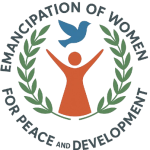Understanding the Power of Women in Rural Communities
Women in rural Nigeria play a crucial role in the social fabric and economic development of their communities. However, their contributions often go unnoticed and unrecognized due to cultural norms and gender bias. The Emancipation of Women for Peace and Development (EWPD) seeks to highlight and enhance these capabilities through educational initiatives and community-based programs.
Why Women’s Emancipation Matters
Empowering women is not just a matter of equality; it directly impacts peace and sustainable development. Here are several reasons why women's emancipation is essential:
- Economic Growth: Women contribute significantly to agricultural production, which is the backbone of Nigeria's rural economy. Empowering women economically leads to whole-community benefits.
- Health Improvements: Educated women prioritize the health and welfare of their families. This results in lower child mortality rates and improved maternal health.
- Community Stability: Empowering women fosters collaboration and peaceful interactions within communities, reducing conflict and promoting social cohesion.
Effective Strategies for Emancipation
At EWPD, we implement various strategies to enhance women’s status and capabilities within rural communities:
1. Popular Education Methodologies
Using engaging and participatory educational techniques, we teach women about their rights, health, and economic opportunities. This includes:
- Workshops on human rights and legal literacy.
- Training sessions on health and wellness, focusing on nutrition and reproductive health.
- Entrepreneurial skills development to enhance income-generating activities.
2. Advocacy and Community Mobilization
We work with local leaders and stakeholders to advocate for:
- Policy changes that support women’s rights.
- The establishment of support networks for women’s groups.
- Community programs that promote gender equality.
3. Building Partnerships
Establishing strong partnerships with other NGOs, governmental organizations, and community groups allow us to:
- Share resources and best practices.
- Enhance outreach and impact.
- Foster sustainable programs that uplift women and children.
Case Studies: Success Stories from Our Initiatives
Our initiatives have borne significant fruits, inspiring success stories from various communities:
- Community Farming Projects: In rural Ekiti, women who participated in our agricultural training increased their yields by over 40%, leading to better food security and economic independence.
- Health Advocacy: In Benue, our health workshops led to a decrease in maternal mortality rates and increased awareness on child health prevention tactics.
The Road Ahead: Continuing the Fight for Women
While significant progress has been made, the journey toward women's emancipation in Nigeria continues. Ongoing commitment from organizations like EWPD and the communities we serve will ensure sustainable development and enduring peace. Here are a few ways everyone can contribute:
- Volunteer your skills or time to local NGOs that support women's rights.
- Advocate for gender inclusivity in community discussions and decision-making.
- Share knowledge about women’s rights and resources through social platforms.
Conclusion
Emancipation of women is not just a goal; it is a necessary pathway toward a more peaceful and sustainable future in Nigeria. By continuing to empower women, we can enhance community resilience and achieve meaningful development that benefits everyone.
